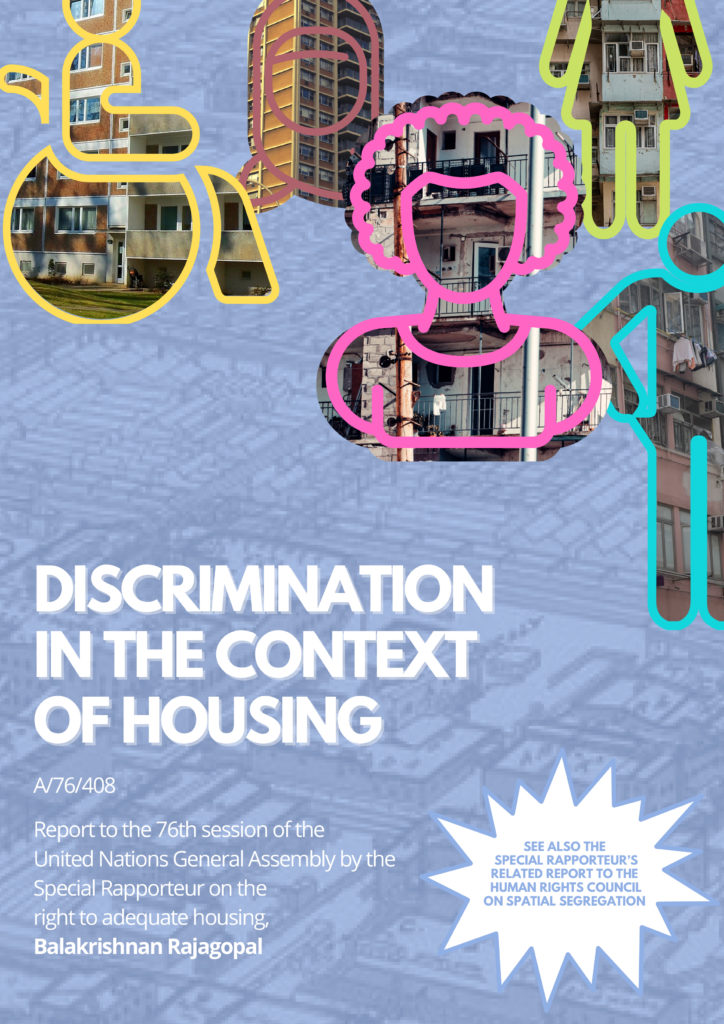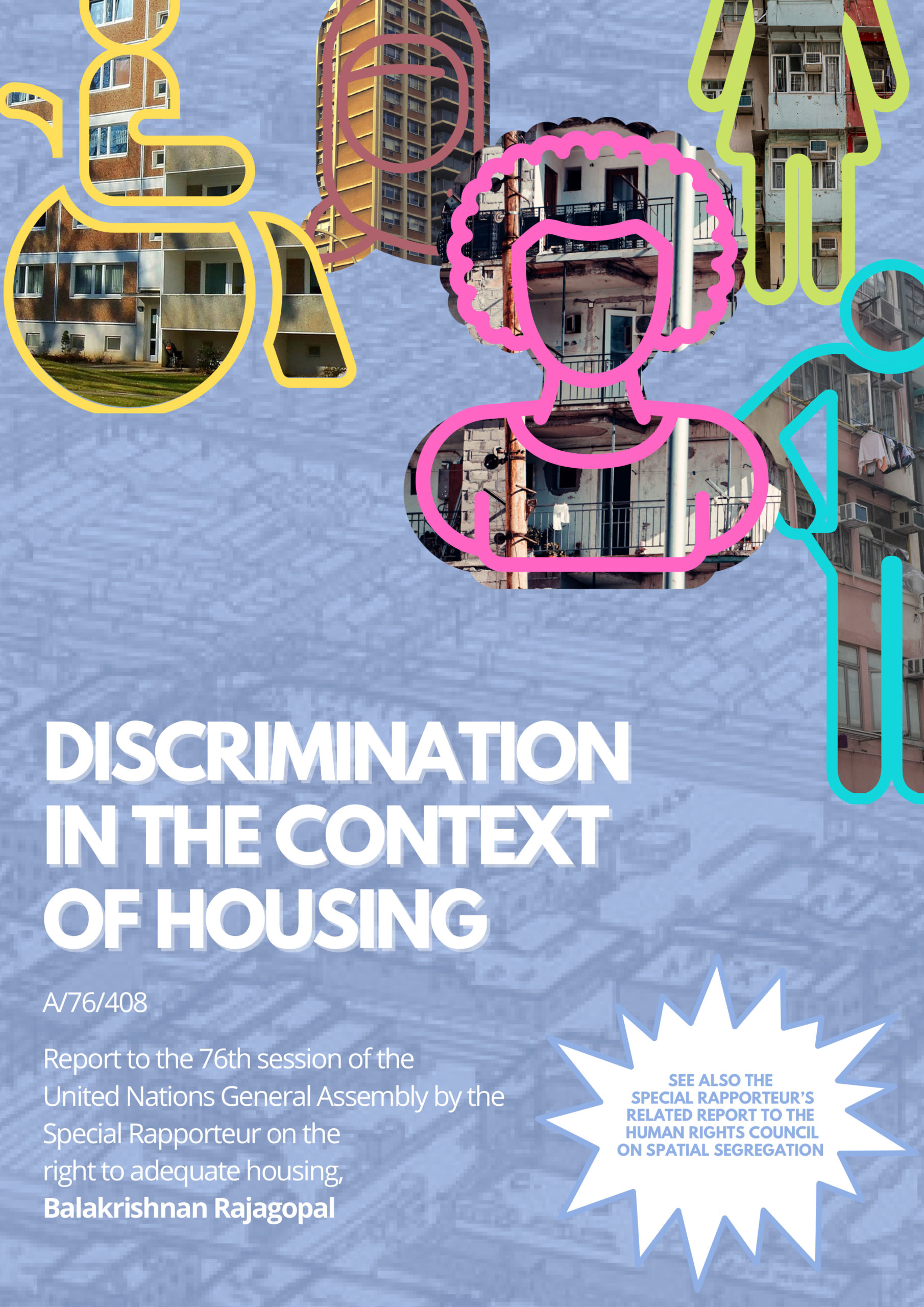Report to the 76th session of United Nations General Assembly by the Special Rapporteur on the right to adequate housing, Balakrishnan Rajagopal.
The report draws attention to the fact that discrimination in housing is one of the most pervasive and persistent barriers to the fulfilment of the right to adequate housing today. While global-level statistics do not exist on the scope of housing discrimination being experienced across regional contexts, at the national and regional levels extensive research, civil society testimony, studies and surveys show evidence of a problem of global magnitude.
This report is the second of two interrelated thematic reports of the Special Rapporteur. The first one on Housing discrimination and spatial segregation can be found here.

General Measures
States are under an obligation to adopt legislative measures that seek to address discrimination on grounds recognized under international human rights law and provide effective judicial or other mechanisms through which such rights can be enforced. However, a substantial number of countries lack either legislative or constitutional measures that prohibit discrimination in access to housing or in other economic, social and cultural rights.
Special Measures
At the national level, different States have advanced special measures to expand access to housing for vulnerable groups Special measures to address housing discrimination have also been advanced by local governments. Local jurisdictions can play a crucial role in addressing discrimination and advancing fair access to housing owing to their primary role in regulating land use and rental housing.
Read the full report “Discrimination in the context of Housing“.
